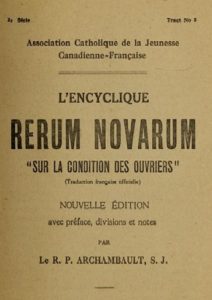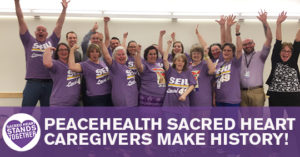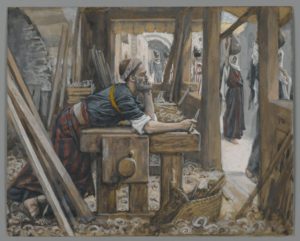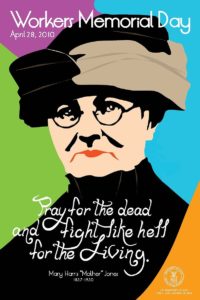by Bill Droel
There is the world of meritocracy and the world of grace. There is the world of: I worked hard and I deserve what I have. And there is the world of: There but for the grace of God and others I could be.
Once upon a time a landowner hired some day laborers for his vineyard. Going about his daily business the landowner thrice saw idle day laborers in the plaza parking lot. Each time he hired them for the vineyard job. That evening he paid all the workers the standard daily wage; the same total wage for those who worked a couple hours as for those who toiled all day. (See Matthew 20: 1-16)
In 2005 Hamdi Ulukaya founded Chobani Yogurt in Norwich, NY. He hired five workers. Chobani is now the top-selling yogurt brand with over 2,000 employees at its New York and Idaho plants. Ulukaya, a Kurdish immigrant, is quite wealthy. Late last month Ulukaya told his employees about a gift. He is giving each of them shares in the company, totaling about 10% of the company’s worth. The initial math estimates the gift on average to be $150,000. Some workers will get more and the final calculation may well increase the average. “I cannot think of Chobani being built without all these people,” Ulukaya told the N.Y. Times (4/26/16). Ulukaya has long said that a company’s moral conduct, including better pay, leads to success. Companies, he told another interviewer, must look beyond the so-called bottom line. “Business is still the strongest, most effective way to change the world,” Ulukaya said.
Matthew does not tell us the precise motivation of the vineyard owner. Ulukaya, like all of us, does everything for multiple motives. The two employers though share a world view. They have a similar conviction about the nature of reality. And this is important: their business disposition comes irrespective of life’s ups and downs. The vineyard owner and the yogurt executive both suspect that inexplicable generosity haunts the world. They believe that the proper response to the gift of life and to all of life’s gifts is to give the gift away.
Neither executive denies suffering. Misery is part of the human condition. Specifically, Ulukaya has experienced business and personal failures. The same was probably true for Matthew’s agricultural executive.
Neither executive thinks that a gratitude attitude means acquiesce to injustice. Nor is there evidence that either thinks business is for saps. They are realists whose take on things includes appreciation for the powerful but unpredictable spirit of benevolence.
A world centered on meritocracy is always filled with cynicism and resentment. Those who live only by the art of the deal are always incomplete people who usually cannot sustain their ventures.
Belief in a grace-filled world will not result in constant, pervasive toe-tapping, hand-clapping happy times. It does, however, instill confidence. It disposes people to abiding joy that percolates all around. Vaclav Havel (1936-2011), a president of Czechoslovakia and first president of Czech Republic, reminds us that haughtiness is deceiving. Real hope, he says, is not the conviction that something will turn out well, but the certainty that something makes sense, regardless of how it turns out.”
Droel edits INITIATIVES (PO Box 291102, Chicago, IL 60629).








